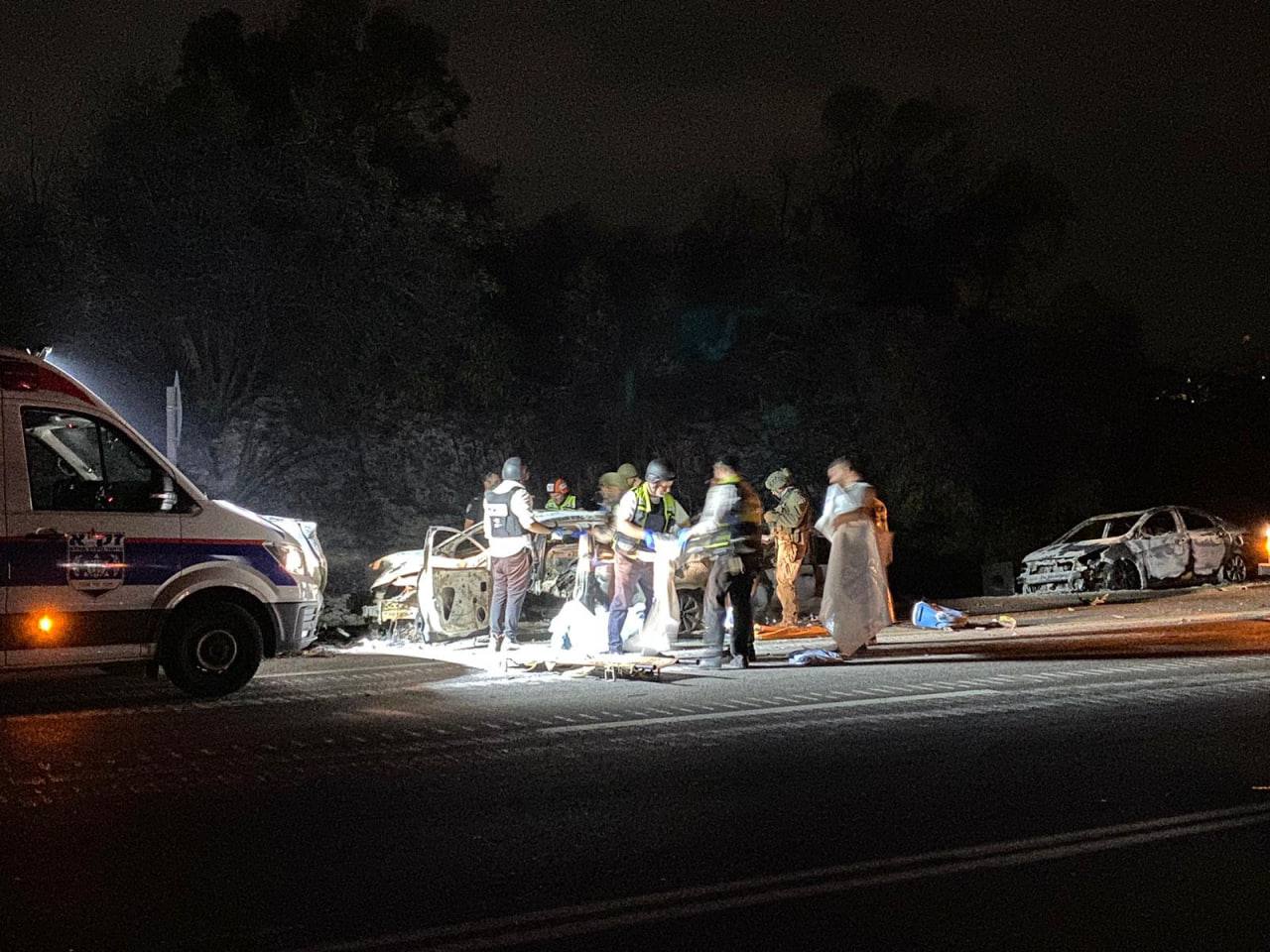After the chaos in Israel due to the Al-Aqsa Storm operation, the question arises that how did the country’s intelligence agencies like Mossad, Shin Bet and Shabak fail to detect it?
Saturday, October 7, is a big day in the history of political and security equations in the West Asian region, and especially in the framework of the conflict between the Palestinian resistance movement and Israel.
On the morning of this day, Palestinian groups, including Hamas, launched widespread and inclusive attacks against various cities and towns in Israel in a joint operation called “Al-Aqsa Storm”.
During this operation, Hamas’s cyber, drone, missile and ground forces participated and for the first time they created scenes that were unprecedented or rare in the history of the conflict of the Palestinian nation.
For example, there has never been a history that Palestinian groups killed more than 300 people on the Israeli side and injured about 1000 on the very first day of conflict and war with Israel.
Read More: The death toll of Israelis in Al-Aqsa storm increased to 350
Or it never happened when Palestinians killed more than 50 Israelis, including a high-ranking army general, and captured many intelligence officers.
At the same time, there has never been a time when Palestinian groups have come together and carried out a campaign with such precision inside Israel.

The accuracy and efficiency of the operation can be gauged from the fact that the infantry of Palestinian groups crossed the eight-meter high and more than 700-kilometer-long border wall during the operation to infiltrate Israeli cities and towns located in the neighborhood of Gaza Strip. Have done.
Israel’s defense and infrastructure systems have also suffered widespread and significant cyber-attacks.
The pictures of frightened and terrorized Israelis running away in the desert or prisoners held in groups or the capture of police stations and military establishments are surprises that probably will not be digested for the next few years.
These photos astonished even those who have worked and researched in the field of the Israeli-Palestinian conflict for years.
Undoubtedly the Al-Aqsa Storm operation, with its wide-ranging area action, brings important regional consequences for Israel and its related institutions and structures.
These results will show concrete signs in the coming days and may further weaken the current weak position of Netanyahu’s cabinet.
Three major setbacks of Al-Aqsa storm operation
In this article, we are telling about three major setbacks of Al-Aqsa Storm Operation which are going to come in the coming time.
1. Growing crisis for Israel’s intelligence and spy agencies
When we examine the broader dimensions of the Al-Aqsa Storm operation, one of the first things that appears is the willingness of various Palestinian groups to undertake such a precise and comprehensive campaign to carry out such an operation.
Coordinating the military forces with each other was the work of months of training and intelligence activities. Simply put, this attack was not a plan of one or two days, it was worked on for months or perhaps years.
Now the question arises that where were the various Israeli intelligence and spy organizations like Mossad, Shin Bet and Shabak, who failed to trace such a huge operation?
This question becomes more important when we see that Israel has created a special identity and credibility for its intelligence agencies, especially the Mossad, at the international level.
The fame of Mossad is so much that even films have been made about the expertise of the intelligence agents of this agency in which they are seen carrying out various missions and eliminating the enemies of Israel.
There is no doubt, the aftershocks of the Al-Aqsa Storm operation will soon be visible in Israel’s intelligence agencies. And in no time, we will see a storm of suspensions and job losses in these units.
After which the Israeli intelligence agencies, which were already struggling with the crisis, may fall into trouble.
Meanwhile, Israeli citizens will also intensify their criticisms against these institutions and Netanyahu’s cabinet, and the issue will lead to an expansion of the dimensions of the crisis against them.
2. Fear of Netanyahu’s cabinet falling
As the depth of the Al-Aqsa storming operation and its critical dimensions for Tel Aviv came to light, Yair Lapid and Naftali Bennett, one of the leading figures of the Israeli opposition, suggested to Netanyahu to set aside differences in the face of the current crisis and said that a national cabinet should be formed to deal with the crisis.
The main message of this resolution is that even Netanyahu’s opponents have realized that the probability of the collapse of Netanyahu’s cabinet and the coalition on which his cabinet is based is very high.
In this critical situation, Israeli political currents find themselves in such a boat that they feel that if they do not unite then this incident may have fatal consequences for them.
Read More: Israel intend to authorize police to use live bullet against Palestinians
The Israeli public largely considers the radical ideology of Netanyahu and his cabinet as the main reason for the Al-Aqsa storm operation.
And also, given the ongoing protests against this cabinet for insisting on the implementation of the Judicial Reforms Bill, it must be said that all signs of the downfall of this government are visible.
Therefore, considering Israel’s current extraordinary situation, the fall of Netanyahu’s government could be one of the three major setbacks to the Al-Aqsa storming operation.
3. Al-Aqsa storm and the shaky fate of the Abraham Accords
In the recent past, with the mediation of the Biden administration, there have been great efforts by Western political figures and media establishments to normalize relations between Israel and Saudi Arabia.
By the third anniversary of the signing of the Abraham Accords, their efforts had reached a more serious level.
Some observers were even saying that very soon an agreement would be signed to normalize relations between Israel and Saudi Arabia.
Hamas attack kills over 700 Israelis, worst in country’s history
The incident of Al-Aqsa Storm Operation is a big message for countries that want to normalize relations with Israel.
The key message is that fundamentally Israel itself faces deep security challenges and to think that normalization of relations with Israel can create security and strategic benefits for them is not at all a logical and rational proposition.
Therefore, the Al-Aqsa Storm operation, apart from generating a wave of joy in Arab and Islamic countries, also sent a meaningful message to those Arab governments who saw themselves on the verge of normalizing relations with Israel.
Undoubtedly, Israel’s poor image in the current situation will greatly hinder progress toward the goal of some Arab governments to normalize relations with Tel Aviv.
















